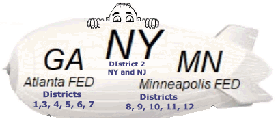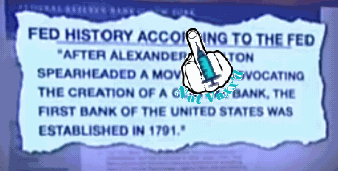 |
 |
 |
 |
 |
 |
 |
 |
 |
 |
 |
 |
 |
 |
 |
 |
 |
 |
 |
 |
 |
 |
 |
 |
 |
 |
 |
 |
 |
 |
 |
 |
 |
 |
 |
 |
 |
 |
|
|
|
|
|
|
|
|
|
|
|
|
|
|
|
|
|
|
|
|
|
|
|
|
|
|
|
|
|
|
|
|
|
|
|
|
|
|
|
|
 |
|
|
|
https://wonderlandnews.exposed/Articles_of_Confederation.html
|
|
|
|
|
|
|
|
|
|
|
|
|
|
|
|
|
|
|
|
|
|
|
|
|
|
|
|
|
|
|
|
|
|
|
|
|
|
|
|
|
|
|
|
|
 |
|
 |
|
 |
|
|
|
|
|
|
|
|
|
|
|
|
|
|
|
ARTICLES OF CONFEDERATION
|
|
|
|
|
|
|
|
 |
|
|
|
|
|
|
|
|
|
 |
|
|
|
|
|
|
The faith of all the then thirteen States expressly plighted and engaged that it should be perpetual
by the Articles of Confederation in 1778.
|
|
|
|
|
|
|
 |
|
|
|
|
|
|
|
|
|
The following was compiled as a comparison, detailing the similarities and differences between the Constitution and the Articles. The topic page for The Articles and the Constitution Explained Page may also be of some interest.
For research article click here.
For reading of the US Constitution and Bill of Rights, follow the links on this website.
|
|
|
|
|
|
|
|
 |
|
|
|
|
|
|
|
|
|
|
The Union is much older than the Constitution. It was formed, in fact, by the Articles of Association in 1774.
It was matured and continued by the Declaration of Independence in 1776.
It was further matured, and the faith of all the then thirteen States expressly plighted and engaged that it should be perpetual, by the Articles of Confederation in 1778.
And finally, in 1787, one of the declared objects for ordaining and establishing the Constitution was to form a more perfect Union.
Accordingly, Article XIII states that the Union "shall be perpetual"
By itself the word perpetual appears much earlier in the history of political thought. In January 44 B.C., Denarii coins were struck with the image of Julius Caesar and the Latin inscription "Caesar Dic(tator in) Perpetuo"
Research article click here.
|
|
|
|
|
|
|
|
|
|
1765/03/22 NA - Declaration of Rights is passed
1775/04/18 WR - American Revolution begins
1775/05/10 NA - Second Continental Congress convenes
1776/07/04 NA - Declaration of Independence adopted
1776/12/20 NA - Third Continental Congress convenes
1777/11/15 NA - Articles of Confederation proposed
1781/03/01 NA - Articles of Confederation ratified
1784/01/14 WR - Revolutionary War Ends (Treaty of Paris)
1787/05/25 NA - Constitutional Convention opens
1787/09/17 NA - Final draft of the Constitution sent to Congress
1789/03/04 NA - The Constitution goes into effect
1860 to - Southern States Secede from the Union
1861
1861/04/12 WR - Civil War begins (Fort Sumter)
1865/04/08 WR - Civil War ends (Lee surrenders to Grant)
to
- States readmitted to the Union
1893/06/27 NA - Stock market crash
1907/03/13 NA - Stock market crash
1913/12/22 NA - Federal Reserve System signed into Law
|
|
|
|
|
|
|
|
|
|
|
|
|
|
|
Congress was denied any powers of taxation: it could only request money from the states. The states often failed to meet these requests in full, leaving both Congress and the Continental Army chronically short of money.
As more money was printed by Congress, the continental dollars depreciated. In 1779, George Washington wrote to John Jay, who was serving as the president of the Continental Congress, "that a wagon load of money will scarcely purchase a wagon load of provisions.
|
|
|
|
|
|
|
|
|
|
|
|
|
|
|
|
|
|
Mr. Jay and the Congress responded in May by requesting $45 million from the States. In an appeal to the States to comply, Jay wrote that the taxes were "the price of liberty, the peace, and the safety of yourselves and posterity. He argued that Americans should avoid having it said "that America had no sooner become independent than she became insolvent" or that "her infant glories and growing fame were obscured and tarnished by broken contracts and violated faith. The States did not respond with any of the money requested from them.
Congress had also been denied the power to regulate either foreign trade or interstate commerce and, as a result, all of the States maintained control over their own trade policies. The states and the Confederation Congress both incurred large debts during the Revolutionary War, and how to repay those debts became a major issue of debate following the War. Some States paid off their war debts and others did not. Federal assumption of the states' war debts became a major issue in the deliberations of the Constitutional Convention.
Taxation and commerce
Under the Articles of Confederation, the central government's power was kept quite limited. The Confederation Congress could make decisions but lacked enforcement powers. Implementation of most decisions, including modifications to the Articles, required unanimous approval of all thirteen state legislatures.
|
|
|
|
|
|
|
|
 |
|
|
|
|
 |
|
|
|
|
|
|
|
|
|
|
|
 |
|





